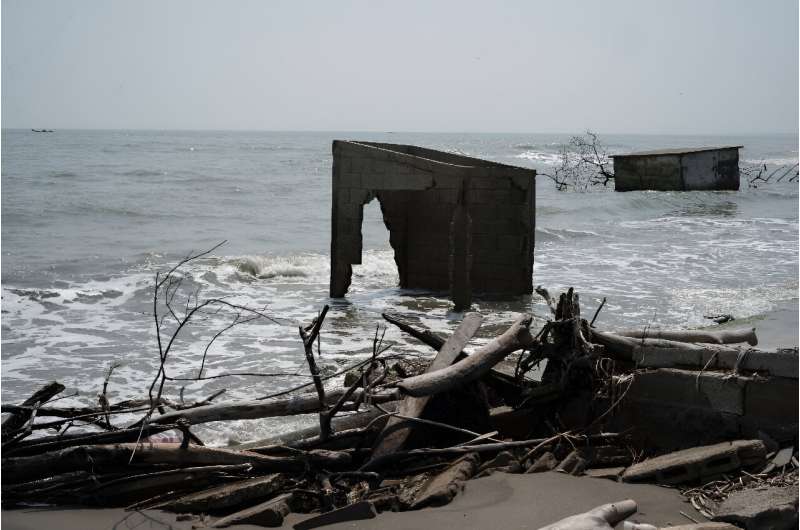
Waves wash over abandoned homes in a Mexican village slowly being swallowed by the sea—a symbol of the climate change effects being felt by the major fossil fuel producer.
The school where Adrian Perez used to attend classes in the community of El Bosque in the southern state of Tabasco now stands in ruins.
Each time he passes it going fishing, he is reminded of what has been lost to the sea.
“It’s hard. I studied there and look at what it became,” the 24-year-old said.
“The climate’s destroying us,” he added.
This year, heat waves have sent temperatures soaring in Tabasco and much of Mexico, stoking the climate change debate as the country prepares for a June 2 presidential election.
According to environmental group Greenpeace, El Bosque is the first community in Mexico to be officially recognized as displaced by climate change.
In February, the Tabasco state congress approved its relocation.
“We hear about climate change all the time but we never thought that it would come to us,” said 34-year-old Cristy Echeverria, who lost her home.
According to the World Meteorological Organization, ocean warming as well as the melting of glaciers and ice sheets caused the global sea level to reach its highest point on record last year.
Tabasco is one of the areas of Mexico hit hardest by this year’s heat waves, with temperatures in the state reaching 40 degrees Celsius (104 degrees Fahrenheit).
Since March, 48 heat-related deaths have been registered across the country, according to the government.
Even Mexico City—whose altitude has traditionally given it a temperate climate—recorded its highest-ever temperature of 34.7 degrees Celsius on Saturday.
Despite international pressure to reduce greenhouse gas emissions, Lopez Obrador has promoted fossil fuel production during his six-year term in a bid to ensure energy independence.
Claudia Sheinbaum, the ruling party candidate leading the race to replace Lopez Obrador, has promised to invest billions of dollars in clean energy while also supporting state oil company Pemex.